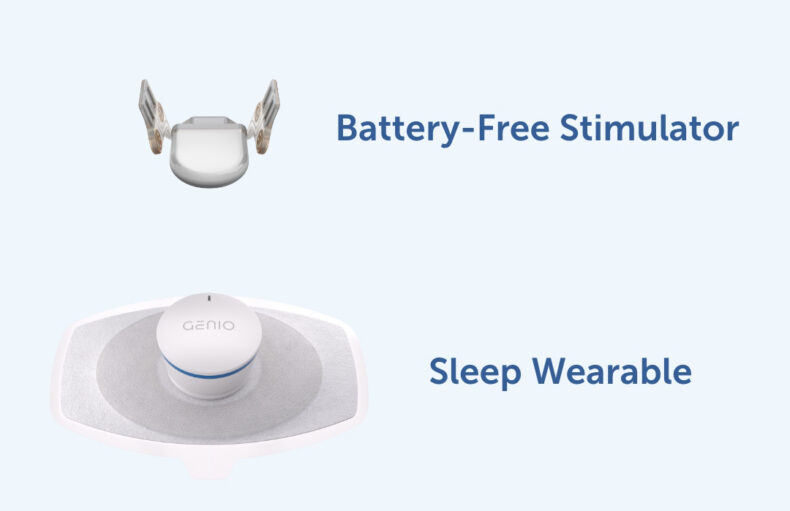Obstructive sleep apnea (OSA) is a sleep disorder in which people experience repetitive obstructions of their breathing multiple times per night. It is a common condition, and has been associated with many health problems including daytime tiredness, high blood pressure, diabetes, cardiovascular disease and stroke, said David Kent, M.D., assistant professor of Otolaryngology.

The most common treatment is Continuous Positive Airway Pressure, or CPAP, and it requires wearing a mask that is connected to a pressure machine every night. While CPAP is a very effective treatment for OSA, some patients are not able to comfortably sleep with it.
Kent, who joined Vanderbilt last year, specializes in medical and surgical treatments for OSA and is spreading the word that there are options for treatment besides CPAP, including surgery and other medical therapies.
There are more than 80 sleep disorders, and OSA is just one of them. Kent works closely with his colleagues in the Vanderbilt Sleep Disorders Center to help each patient find the best treatment for their sleep problems.
“Our sleep center is fortunate to have Dr. Kent join Vanderbilt,” said Huong Pham, M.D., assistant professor of Neurology at the Vanderbilt Sleep Center. “Working as a team, we offer alternative treatments to OSA patients who have difficulty tolerating CPAP. With Dr. Kent, this now includes specific surgical interventions that we were not able to offer previously.”
Sleep apnea affects about 6 percent of women and about 13 percent of U.S. men, and many are turning to alternatives to CPAP, Kent said. Surgery is becoming a better option for some with the right anatomy.
“For a long time, ENT (Ear, Nose and Throat) surgeons had a very limited offering in terms of the surgeries that were available for sleep apnea, and they were pretty invasive,” Kent said. “There has been a real evolution in our surgical options, especially in the last decade.”
In his practice, Kent considers a patient’s unique anatomy and sleep history, providing personalized medicine. Some patients are best managed with medical therapies like CPAP, while others prove to be good candidates for certain surgeries. Sometimes a combination of different therapies is best for a patient, he said.
“The airway acts very differently when we are asleep than when we are awake because of changes in muscle tone,” he said. “If a patient is a candidate for sleep surgery and they don’t have a clear site of obstruction during an awake exam, then we can actually do a sedated exam in the operating room, which is designed to mimic sleep using anesthesia. We take a look with a flexible endoscope while the patient is asleep to get a better sense of what their individual anatomy is doing and what the best treatment will be.”
Kent combines this with multiple other pieces of information, including overnight sleep studies, which are offered at the Vanderbilt Sleep Disorders Center.
“It’s almost like a story,” he said. “Looking at that information, you can see what positions people prefer to sleep in, and how often their sleep apnea wakes them up.”
It all goes back to a patient’s individual anatomy and sleep experience. One promising new therapy, called hypoglossal nerve stimulation, uses an implantable device that acts like a pacemaker for the tongue to prevent airway obstruction.
“It is extremely effective for patients with the right anatomy, and Vanderbilt is the first place in Tennessee where it is available as a treatment option,” Kent said.
Once surgically implanted, the device sends an impulse to the hypoglossal nerve during sleep, gently pulling the tongue away from the back of the throat and relieving airway obstruction.
“One of my goals is to continue improving our understanding of airway anatomy in sleep apnea so that we can do a better job of picking the right therapy for a patient the first time around,” he said.
Beth Malow, M.D., M.S., Michael Burry Professor of Cognitive Childhood Development, Vanderbilt Kennedy Center Investigator and director of the Vanderbilt Sleep Disorders Division, stressed the importance of treating OSA.
“Obstructive sleep apnea is a major public health issue which impacts a variety of conditions ranging from heart disease to stroke to mood disorders,” she said. “We are pleased to have Dr. Kent contribute to our multidisciplinary treatment program.”
Ron Eavey, M.D., Guy M. Maness Professor and chair of Otolaryngology and director of the Vanderbilt Bill Wilkerson Center, said sleep can be underappreciated as a vital component of an individual’s health.
“Sleep restores us,” he said. “Too few locations have both superb medical analysis of sleep — as we have at the Vanderbilt Sleep Center — plus now a surgeon highly trained to focus on sleep issues.”











